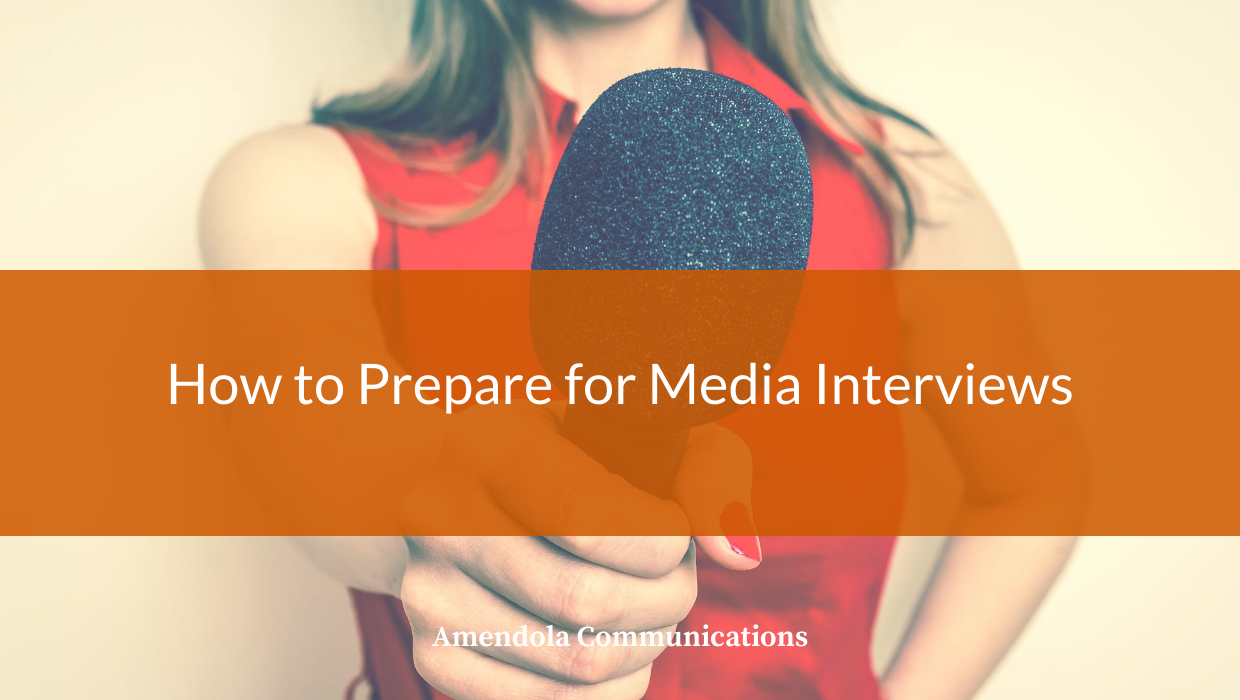The Roman statesman Seneca once said, “Luck is what happens when preparation meets opportunity.” This is a sentiment executives must keep in mind as they prepare for media interviews. And the key word here is preparation.
As busy as everyone seems to be in the era of COVID-19, media interviews – much like any formal presentation – cannot and should not be treated as something to be checked off a list.
A lot goes into preparing company messaging and positioning an organization. Getting third-party validation for a company’s value proposition can go a long way toward softening the beachheads for sales leads and building industry leadership and brand awareness.
But how should one prepare for a media interview? Here are six techniques to consider:
- Review the reporter’s coverage and publication to best understand the audience and how you need to communicate to that audience
A PR/marketing agency such as Amendola Communications prepares briefing sheets with details of reporters, their backgrounds, messaging and any caveats. While the PR pros can guide you through the process, it also makes sense to read the reporter’s last three to five articles to ascertain trends or patterns in coverage. Doing so may reveal something you can share with the reporter to strike a chord during an interview.
- Write out your key messages and envision the headline you want to read
Again, your agency is doing a lot of the leg work already; however, homing in on the three key messages you want to share during an interview goes a long way toward ensuring one stays focused and doesn’t stray into unchartered territory. A reporter has only so much time, so you want to maximize your time to deliver your key messages and get your points across. Furthermore, think about the headline and story you want to see resulting from the interview, and figure out how you’ll get there.
- Consider the types of questions that can lead to minefields
Along with No. 2, your agency should caution you about the types of questions that will take you off the path of a productive interview for your organization. Those questions may involve competitors, controversies or unpopular opinions. That’s not to say you shouldn’t address them or consider being provocative. But it’s best to practice your responses ahead of time and test them with key colleagues and your communications advisors to ensure they are the types of messages that will have the intended impact. And if you don’t want to answer certain questions, using bridging techniques can help you get back on track.
- Practice in front of a mirror to gauge body language
While this technique is especially important to prep for broadcast or Zoom interviews, it’s also valuable in general because it speaks to whether you believe what you’re saying. Are you credible? Are you passionate? If your responses fall flat to you, consider what a reporter will take away. Using a conversational style while conveying insights the reporter can use begets future interviews.
- Ensure any product messaging is grounded in business benefits and not conjecture
While it’s important to demonstrate the success of your products to key influencers, the best way to do so is to substantiate with industry facts, e.g. time and dollar savings, patient/staff safety, industry awards and the like. Of more importance is citing key statistics or anecdotes from key customers. You’ll want to confirm that those customers are referenceable in any media interviews. Your PR agency can help you sort through those details.
- Block off 15-30 minutes prior to an interview to put on your game face
While competitive sports seem like a distant memory during the pandemic, those pre-game rituals still hold a place close to our hearts. Instead of rushing to a media interview, it’s best to block out some time for mindfulness before the interview. Doing so elicits focus and can make your preparation bear real fruit.
Media interviews often seem to be over in a flash, but the outcomes can have a long shelf life. Taking time to properly prepare can elevate your own brand and help your organization flourish.
